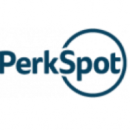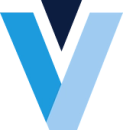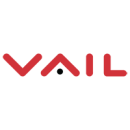In the tech industry, hierarchy is often easy to observe. Upward mobility is defined by climbing the corporate ladder, where promotions generally translate to shepherding more people on the team. The nucleus of the C-suite fans lattices downward in increasingly dense clusters of management subteams. Not every employee, however, is directly linked by this top-down connection.
Individual contributors (ICs) live beyond the corporate web. While they may fall under the umbrella of a department, the nature of their position is self-management. But that doesn’t mean they can’t be leaders.
ICs, by necessity, must be self-sufficient. Siloed in their own role, they possess the interpersonal intangibles to collaborate with teammates without having worked with them on a regular basis. This provides a unique deviation from traditional management, one without influence from a direct power dynamic and enables them to act as floating support for other teams.
Working through influence, rather than managerial authority, allows ICs to scale their responsibilities without having direct reports, according to Harvard Business Review. Control over their own process means ICs are free to mentor members of adjacent roles that may have converging objectives, or dip their toes in other team projects, without impeding their own self-imposed timeline. It’s a sample platter of corporate roles enticing to those that value a balance of work autonomy and diversity.
“I have exposure to enough varied opportunities that things are rarely dull,” said Brian Grant, senior principal software engineer at Morningstar.
In such a free-flying role, ICs taking on leadership duties is an important tether to their sense of place; they report the lowest levels of belonging compared to other managers, according to a survey by BetterUp. At the same time, companies benefit from having mentors on hand exposed to a variety of management styles and team subcultures.
By being outliers of the traditional corporate structure, ICs provide a different perspective on their own workplace. To see this outside point of view, Built In Chicago sat down with some of these independent but dependable employees that are leading projects and launching products of their own — all while managing themselves.

Morningstar offers financial services such as investment research and management.
Describe your role at your company and the most exciting project you’re working on right now.
I am a senior principal software engineer on the data lake team. I operate in a technical leadership capacity and as an individual contributor.
The most exciting project I’m working on right now is related to expanding consumer access to the data lake. Much of the lake’s data is accessible through technologies like AWS Athena and Redshift. These are well-suited for accessing large volumes of data (OLAP), but not for applications that need frequent access to small numbers of records (OLTP). My squad and I are building out a new integration service which will provide access to data from the lake using a PostgreSQL-based mart.
Currently, it can take months for a product to set up a similar process; many products end up doing similar work independently of each other. This new, centralized process promises comparable delivery in something closer to days or even hours.
How have you shown leadership in your current role, whether that’s heading up a project, serving as a mentor or bringing new perspectives to a big company goal? What did you learn from that experience?
Mentorship has been a high point of the leadership opportunities that I have in my current role. It has been particularly gratifying to manage and mentor summer interns. One of them joined Morningstar and we worked together on the data lake team for over a year. I have learned that it’s important to give people the opportunity to try new things and stretch themselves early on. Two interns — neither of whom had any meaningful amount of experience in AWS — did foundational work on two, separate services that are still running in production today.
It’s important to give people the opportunity to try new things and stretch themselves early on.”
What do you see as a potential career path in the near future, and who or what will help you get to your next level?
While I have certainly had career path conversations with my manager recently, the role I’m in right now feels like an excellent fit. It allows me to have a hand in software architecture, technical team leadership, mentorship and a small amount of management while continuing to be an individual contributor. It’s a good balance of different kinds of activities which I find stimulating and challenging.

Belvedere Trading is a proprietary trading firm with a focus on equity index and commodity derivatives.
Describe your role at your company and the most exciting project you’re working on right now.
I am a data product manager at Belvedere Trading (BT). A core tenet of my role is creating data resources to assist other employees’ workflows. My objective is to enable my teammates to make informed data-driven decisions during their workday, both when reflecting on retrospective data and when looking to the future. This exposes me to many roles across the firm while combining two of my favorite things: Helping others and working with data.
The data that I work with most commonly is software logs, which is generated as our trading software runs. This is valuable as it can be leveraged for faster issue detection as well as guiding future project prioritization. But how do we ensure it is all accessible to derive insights?
To answer this, I’ve been developing a platform offering a standardized way to view multiple datasets from a single location. This provides users access to a self-service dashboard suite to answer questions pertaining to how our software operates. Once they have been taught how to view a single dataset within the platform, they can view them all. To date, this platform has made over 350 datasets accessible from all across our environment.
How have you shown leadership in your current role, whether that’s heading up a project, serving as a mentor or bringing new perspectives to a big company goal? What did you learn from that experience?
A company goal has been to make data a first-class citizen throughout the lifecycle of a trade. This means we can always drill into the data underpinning our trading systems, using the resources we have built out. Recently, I noticed some of these were lacking consistent usage, so I took the lead in determining how to fix that.
To do so, I recruited a group of power users for our primary data analysis platform to meet weekly, discussing topics like general user sentiment, educational resources and ideas for new functionality. I come prepared with topics each week but always allow time for open discussion from the rest of the group. This has generated a lot of engagement and the ideas we produced have already delivered positive usage results.
From this, I have learned innovative ideas can come from anywhere. To cultivate those ideas, you must be inquisitive. Never assume you know someone’s thoughts or feelings about a topic — always ask. You will be amazed where the best ideas come from with everyone contributing. To inspire others about a common goal, users or participants need to know that their opinions are being valued in that process.
I have learned innovative ideas can come from anywhere.”
What do you see as a potential career path in the near future, and who or what will help you get to your next level?
My five years thus far at Belvedere have been an insightful journey learning the ins and outs of different data analytics and visualization platforms. Throughout that time, I have been fortunate to learn from and work with incredibly bright and talented people. As I become more experienced, I would like to begin paying that back to others through mentoring and coaching. I hope to lead a team focused on providing the company with the ability to make data-driven decisions.
I love watching the value of data resonate with other members of the firm as they discover its value. This is also incredibly important given today’s world where you’re behind the curve if data doesn’t guide key business decisions. The data analysis sector is rapidly evolving as more data becomes accessible and the fintech space is leading the charge. One of Belvedere’s core values is Iterative Innovation. This means that we not only welcome change — we embrace it. Having that growth mindset is what keeps me excited to come to work every day. It is hard to say what the future landscape will look like with the speed of data analysis’s evolution, but if we continue to embrace change, I know it will be a fun ride.
PerkSpot is a perks and benefits platform that offers personalized discounts and rewards to employees.
Describe your role at your company and the most exciting project you’re working on right now.
In my role as an account executive on the merchant partnerships team, I am responsible for bringing new merchants onto PerkSpot’s platform. This process entails everything from reaching out to prospective merchant partners and negotiating exclusive perks and discounts, all the way to discussing ad spend opportunities within the weekly emails that are sent to our users. The unique part about my role is that no partnership is the same. I constantly have to get creative with every conversation I have, identifying how we will add value to the business of each specific merchant.
A really exciting project that I am working on is bringing the services and tickets of new and existing merchants directly onsite to the PerkSpot platform. Traditionally, the partnerships that we have established with a majority of our merchants have been affiliate-based. This means that when a user wants to redeem the exclusive perk we offer, they are routed to the merchant’s website where they can apply the unique PerkSpot discount code at the time of checkout. Bringing the discounted services and tickets on-site to our platform creates a much simpler, user-friendly experience.
How have you shown leadership in your current role, whether that’s heading up a project, serving as a mentor or bringing new perspectives to a big company goal? What did you learn from that experience?
At PerkSpot, I have been able to demonstrate leadership in a role that is typically viewed as an individual contributor by taking the initiative to coach and mentor our recently-formed business development team. We recently hired our first three full-time business development representatives (BDR), who have been able to bring new business to PerkSpot and upsell our services to our current merchant partners. It’s been a great opportunity to teach them how to launch new partnerships, as well as build relationships with existing ones.
As I think back to my early days as a BDR, I recognize the significant impact that strong mentors and leaders have had on my career, which has continued to help me grasp sales concepts and practices at a quick pace. I’ve enjoyed passing on the skills and knowledge I’ve gained from these mentors by setting up weekly training sessions, one-on-ones and demos to support the career growth and development of our BDR team. It’s been my goal to not only provide support to help them become successful sales professionals, but to also show them what a great work environment looks and feels like.
I have found great pride and satisfaction in both winning and losing with each of these teams.”
What do you see as a potential career path in the near future, and who or what will help you get to your next level?
My ultimate goal is to lead a team of sales professionals. Being involved in team sports has been a big part of my life and has taught me that it’s not just one person who is responsible for the success of the team but everyone, from the coaching staff all the way to the players who may only practice, and never touch the field in a game. I have found great pride and satisfaction in both winning and losing with each of these teams. The values and lessons I’ve learned from having a team mentality are much greater than those I’ve learned on my own, and have ultimately helped shape the way I approach my sales career.
At PerkSpot, I have been fortunate enough to work with my current leader, who teaches me about different management styles, how to lead in a way that gets the best out of their team members and all the intricacies that are important when leading a large sales team. I meet with him consistently to discuss how an effective manager brings value to their team, and how I can start applying these learnings to my job today. I look forward to continuing to serve as a mentor here, and further expand my sales leadership skills.
Farmer’s Fridge is a subscription service for ready-to-eat meals.
Describe your role at your company and the most exciting project you’re working on right now.
I’m a principal engineer, which in this context means that I work for the whole tech organization instead of one specific team. My manager sets my priorities for the quarter, but on the day-to-day I work on whatever is most important that day. This means that depending on the day I can be fixing small bugs or architecting a new platform that can impact the whole business. The most exciting project that I’m working on is a complete remake of how we handle pricing in the company. This will impact every single vertical and department in the company, and will set us up to scale the company exponentially in the future.
How have you shown leadership in your current role, whether that’s heading up a project, serving as a mentor or bringing new perspectives to a big company goal? What did you learn from that experience?
In my previous role I was managing a couple of teams, which was great on-hands training for leadership, but also made me realize that everything that I loved about my job were things that I could do as a senior individual contributor, and everything that I didn’t like were things that I could only do as a manager.
Besides the normal technical expectations for my role, like leading big projects, I use my past experience to try to be a mentor and help my peers grow, either by helping them navigate the company, being a sounding board when they need it or advocating for them to get the opportunities that they deserve.
Putting the time and effort into helping other engineers grow is extremely rewarding, not only for the company, but also for us as individuals. Knowing that you’re helping others succeed in their careers, just like others did for us, is what drives me everyday.
Everything that I loved about my job were things that I could do as a senior individual contributor.”
What do you see as a potential career path in the near future, and who or what will help you get to your next level?
I see myself growing in an individual contributor role, pushing the boundaries of what we can do from this side. As the company grows, we get more and more chances to not only design and implement innovative solutions, but to also open bigger opportunities for my teammates. Just like with every big dream, you need as many people on board as possible, and here we have the support of the company leadership, cross-functional partners and colleagues. Working all together towards the same goal is what will get us to the next level.

Braviant Holdings is a digital lending platform for consumer credit.
Describe your role at your company and the most exciting project you’re working on right now.
At Braviant, we have a huge amount of data, but our teams are unable to use it without clear, meaningful visualizations. We “lead with data,” meaning it’s embedded in every decision we make. I work with teams across the company to understand their needs and deliver data visualizations that help them make the best possible decisions. Currently, I’m working on a data integrity project so we can confidently present the most accurate data to all levels of the company.
How have you shown leadership in your current role, whether that’s heading up a project, serving as a mentor or bringing new perspectives to a big company goal? What did you learn from that experience?
I have led the development of new dashboards for multiple teams, helping them leverage our existing data to inform their work and meet our goals. Not only have I been able to gain a deep understanding of our company through the more technical hands-on SQL and Looker data, but I’ve built relationships with stakeholders across teams. I’ve learned so much about what makes data impactful, what helps drive decision making and how teams really use data in their everyday work. I view my role in a leadership lens, because I have to act entrepreneurially and flexibly based on the priorities of our fast-paced business and industry.
I’ve built relationships with stakeholders across teams.”
What do you see as a potential career path in the near future, and who or what will help you get to your next level?
Currently, I’m hoping to learn more about statistics and forecasting in order to incorporate business analysis into my practice, and take more ownership and direction over what data is impactful and important for teams as they work to meet our KPIs. I’m also interested in investigating complex data workflows and using the tools we have internally to simplify and automate them, bringing data to our users’ fingertips. My manager has been incredibly supportive of my goals and has allowed me resources, coaching and time to pursue those goals.
Vail Systems is a telephony company that offers software services for better customer communication.
Describe your role at your company and the most exciting project you’re working on right now.
My role is senior technical lead, focusing on DevOps and operational excellence and encompassing collaboration with three to four different teams. I regularly attend these teams’ weekly meetings to offer a shorter feedback loop on questions that require specialized knowledge or information from the other teams I work with. By acting as a short circuit, the teams are able to work faster without necessarily having to reach out to an external team.
In the same theme of streamlining our work, the most important project I’m working on is currently with our largest application. This involves moving from a more conventional VM based testing process to Kubernetes, which enables significantly faster and easier regression testing. In short, this project will allow any developers to conveniently run their own regression tests at any time, which will also take some of the load off of our quality assurance team.
How have you shown leadership in your current role, whether that’s heading up a project, serving as a mentor or bringing new perspectives to a big company goal? What did you learn from that experience?
I’ve worked with several styles of development at different companies. Exposure to these varying operations enabled me to provide a totally new perspective on how we handle our processes. We found that these processes allowed developers to own as much of the process as possible.
This experience taught me that there’s no one solution to any problem, since something that works really well for one company may not work at all for another. However, if you understand why a solution worked for a specific use case, you’re then able to use that understanding to find a new solution for something else.
What do you see as a potential career path in the near future, and who or what will help you get to your next level?
In the future, I can see myself continuing down the individual contributor track and possibly proceeding to some type of architect role. I’d be providing direct and early feedback to teams as they move through the development process. The most important thing for me to have prior to taking on this type of role is the understanding of internal processes and industry best practices. That experience would then enable our teams to find the best solutions that fit within any potential limitations, which are unique to individual industries and companies.
Exposure to these varying operations enabled me to provide a totally new perspective.”
To reach the next milestone of my career, the continued guidance and support of Vail leadership will be a significant factor. Through providing feedback and insight on my performance and abilities, leadership has helped me find and focus on skills that are critical for future growth opportunities.
SteelSeries is a gaming hardware and software company that specializes in gaming peripherals.
Describe your role at your company and the most exciting project you’re working on right now.
I work as the live stream and community manager at SteelSeries. It is truly a privilege to be able to work for a company that creates products that connect gamers across the globe. While this is a big responsibility in itself, it is also the reason we find it essential to be able to communicate and engage with our audience. No matter where they are, that’s where I go. I get to communicate with our gamers through our online channels and live video streams that I produce in their entirety. While it sounds simple enough, the amount of work can be substantial. The production process of one live stream can be challenging. There are instances in which we have to stream about a product and other times when we have guests outside of the company, on camera. Think of it as producing, directing, tech supporting and hosting a TV show — all at once. All the revenue we make from our streams goes to a different charity each month.
Recently, I’ve been given an opportunity to manage and lead an important project for which I am extremely grateful. I am fortunate to be able to work for a company that recognizes the value of its employees, since I am always looking to grow professionally.
How have you shown leadership in your current role, whether that’s heading up a project, serving as a mentor or bringing new perspectives to a big company goal? What did you learn from that experience?
I have worked with marketing teams, product developers, game developers and online communities. This experience has given me the advantage of better understanding the expectations and wishes of all businesses. I can turn perfectives and reactions into improvements and actions, translating what a company is trying to convey in a language that can be understood by all, both the company audiences and players.
What do you see as a potential career path in the near future, and who or what will help you get to your next level?
I’ve been given an opportunity to manage two high-level projects. My goal is to successfully execute these tasks to transition into a project management role. I don’t take opportunities for granted.
This experience has given me the advantage of better understanding the expectations and wishes of all businesses.”


















